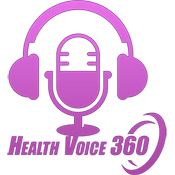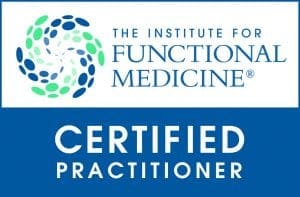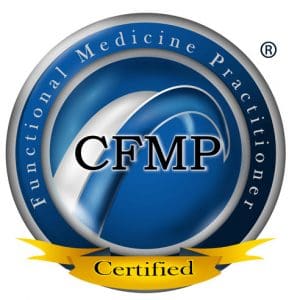Learn how chiropractic care can play a role in managing cardiovascular disease and enhancing overall health.
Table of Contents
Chiropractic Care and Heart-Healthy Diets: A Comprehensive Guide to Reducing Cardiovascular Disease
Cardiovascular disease (CVD) remains a leading cause of death worldwide, silently creeping up like a villain in a horror movie, waiting to strike when you least expect it. But fear not—there’s hope! By combining the power of chiropractic care with a heart-healthy diet, including the superhero nutrient lycopene, you can fight back against this stealthy foe. In this comprehensive guide, we’ll dive deep into how chiropractic care, guided by experts like Dr. Alexander Jimenez, DC, APRN, FNP-BC, and a diet rich in heart-protecting nutrients can reduce your risk of CVD. We’ll also explore the musculoskeletal connections to heart health, the role of personal injury care in El Paso, and practical tips for small lifestyle changes that make a big difference. Buckle up—it’s time to give your heart and spine the love they deserve, with a sprinkle of dark humor to keep things lively.
Understanding Cardiovascular Disease: The Silent Stalker
Cardiovascular disease encompasses a range of conditions affecting the heart and blood vessels, including coronary artery disease, heart attacks, strokes, and hypertension. Cardiovascular disease is a serious health condition that causes millions of deaths every year. According to the World Health Organization, CVD claims about 17.9 million lives each year, making it the top global killer (World Health Organization, 2021). Risk factors include high blood pressure, high cholesterol, smoking, obesity, diabetes, and a sedentary lifestyle—basically, all the things that make modern life a little too “comfortable.”
These risk factors don’t just harm your heart; they also wreak havoc on your musculoskeletal system. Imagine your body as a creaky old house: high blood pressure and cholesterol are like termites gnawing at the foundation (your heart), while the resulting inflammation and poor circulation make your joints and muscles groan like rusty hinges. This overlap is where chiropractic care steps in, offering a unique approach to managing both heart and musculoskeletal health.
References
- World Health Organization. (2021). Cardiovascular diseases (CVDs). https://www.who.int/news-room/fact-sheets/detail/cardiovascular-diseases-(cvds)
The Role of Chiropractic Care in Cardiovascular Health
Although chiropractic care is often associated with treating back pain and relieving neck pain, it has a deeper connection to heart health than one might initially believe. Chiropractors like Dr. Alexander Jimenez in El Paso focus on spinal health, which influences the nervous system—the body’s control center. A misaligned spine can disrupt nerve signals, contributing to stress, inflammation, and even blood pressure issues, all of which are bad news for your ticker.
The Clinical Rationale
Research shows that chiropractic adjustments can lower blood pressure and improve heart rate variability (HRV), a marker of heart health. A study published in the Journal of Manipulative and Physiological Therapeutics found that upper cervical chiropractic care significantly reduced blood pressure in patients with hypertension (Bakris et al., 2007). The mechanism? Adjustments to the upper spine, particularly the atlas vertebra, may influence the autonomic nervous system, reducing sympathetic (fight-or-flight) activity and promoting parasympathetic (rest-and-digest) balance. This process is like telling your body, “Chill out, we’re not being chased by a bear anymore.”
Chiropractic care also reduces systemic inflammation, a key driver of CVD. Chronic inflammation is like a slow-burning fire in your arteries, leading to plaque buildup and heart attacks. A 2018 study found that chiropractic adjustments decreased inflammatory markers like C-reactive protein, which is linked to cardiovascular risk (Roy et al., 2018). By keeping your spine aligned, chiropractors help douse that fire, giving your heart a fighting chance.
Musculoskeletal Overlap
CVD risk factors like obesity and poor posture can strain the musculoskeletal system, causing back pain, joint stiffness, and reduced mobility. For example, excess weight puts pressure on the spine, leading to disc degeneration, while poor circulation from CVD can cause muscle cramps and fatigue. Chiropractic care addresses these issues by improving spinal alignment, enhancing blood flow, and reducing nerve compression. Dr. Jimenez’s approach, as highlighted on Health Voice 360, emphasizes integrative care that tackles both heart and musculoskeletal health, ensuring you’re not just surviving but thriving.
References
- Bakris, G., Dickholtz, M., Meyer, P. M., Kravitz, G., Avery, E., Miller, M., Brown, J., Woodfield, C., & Bell, B. (2007). Atlas vertebra realignment and achievement of arterial pressure goal in hypertensive patients: A pilot study. Journal of Manipulative and Physiological Therapeutics, 30(4), 278–283. https://pubmed.ncbi.nlm.nih.gov/29744009/
- Roy, R. A., Boucher, J. P., & Comtois, A. S. (2018). Inflammatory response following a short-term course of chiropractic treatment in patients with chronic low back pain. Journal of Chiropractic Medicine, 17(2), 83–91. https://pubmed.ncbi.nlm.nih.gov/31317029/
Lycopene: The Heart’s Unsung Hero
If your heart had a fan club, lycopene would be its president. This powerful antioxidant, found in red foods like tomatoes, watermelon, and pink grapefruit, is a heart-health superstar. Lycopene’s benefits go beyond giving your pasta sauce its vibrant hue—it’s like a shield for your arteries, protecting them from the ravages of CVD.
Why Lycopene Matters
Lycopene neutralizes free radicals, those pesky molecules that damage cells and contribute to atherosclerosis (hardening of the arteries). A 2023 study found that higher lycopene intake was associated with a lower risk of coronary artery disease due to its anti-inflammatory and lipid-lowering effects (Gao et al., 2023). It’s like lycopene swoops in, cape flapping, to clean up the mess in your blood vessels.
Lycopene also improves endothelial function, which is how well your blood vessels relax and contract. Poor endothelial function is a precursor to heart attacks and strokes, like a warning light on your car’s dashboard. A 2015 study showed that lycopene supplementation improved endothelial function in patients with cardiovascular risk factors (Kim et al., 2015). Plus, lycopene may reduce LDL (“bad”) cholesterol oxidation, a key step in plaque formation, as noted in a 2020 review (Müller et al., 2020).
How to Get More Lycopene
To boost your lycopene intake, incorporate these foods into your diet:
- Tomatoes: Cooked tomatoes (think sauces, soups, or roasted) are especially rich, as heat enhances lycopene absorption.
- Watermelon: A refreshing summer treat that’s heart-healthy.
- Pink Grapefruit: A tangy breakfast option.
- Guava: A tropical delight packed with lycopene.
Pro tip: Pair lycopene-rich foods with healthy fats (like olive oil or avocado) to maximize absorption. Your heart will thank you, and you’ll feel like a culinary genius. For more details on lycopene’s benefits, check out the article from El Paso Back Clinic.
References
- Gao, Y., Wang, Y., & Zhang, Y. (2023). Lycopene and cardiovascular disease: A systematic review and meta-analysis. Nutrients, 15(9), 2134. https://pubmed.ncbi.nlm.nih.gov/37113563/
- Kim, J. Y., Paik, J. K., Kim, O. Y., Park, H. W., Lee, J. H., & Jang, Y. (2015). Effects of lycopene supplementation on oxidative stress and markers of endothelial function in healthy men. Atherosclerosis, 242(1), 189–194. https://pubmed.ncbi.nlm.nih.gov/26391109/
- Müller, L., Caris-Veyrat, C., Lowe, G., & Böhm, V. (2020). Lycopene and its antioxidant role in the prevention of cardiovascular diseases—A critical review. Critical Reviews in Food Science and Nutrition, 60(11), 1868–1879. https://pubmed.ncbi.nlm.nih.gov/31996227/
Dr. Alexander Jimenez: A Beacon of Integrative Care in El Paso
In El Paso, Texas, Dr. Alexander Jimenez stands out as a leading Functional Medicine practitioner, certified through the Institute for Functional Medicine (IFM). His expertise, showcased on Health Voice 360 and LinkedIn, blends chiropractic care, functional medicine, and advanced diagnostics to address both CVD and musculoskeletal issues. Think of him as the Swiss Army knife of healthcare—versatile, precise, and ready to tackle any challenge.
Personal Injury Expertise
Dr. Jimenez is also a distinguished practitioner for personal injury cases in El Paso, particularly for victims of car accidents, workplace injuries, or slip-and-falls. Personal injuries often involve musculoskeletal damage that overlaps with CVD risk factors, like inflammation and restricted mobility. Dr. Jimenez uses advanced imaging (X-rays, MRIs) and diagnostic evaluations to pinpoint injuries, ensuring accurate treatment plans. His dual-scope procedures—combining chiropractic adjustments with functional medicine—address both immediate pain and underlying health issues, like inflammation that could exacerbate heart problems.
What sets Dr. Jimenez apart is his ability to act as a liaison between the medical and legal worlds. He provides detailed documentation for personal injury cases, ensuring patients receive the care and compensation they deserve. It’s like having a translator who speaks both “doctor” and “lawyer,” making sure nothing gets lost in translation. His work ensures that victims not only recover physically but also navigate the legal system with confidence.
References
- Health Voice 360. (n.d.). Dr. Alexander Jimenez. https://healthvoice360.com/
- Jimenez, A. (n.d.). LinkedIn profile: https://www.linkedin.com/in/dralexjimenez/
Eating Right To Feel Better- Video
Small Changes, Big Impact: Lifestyle Tips for Heart and Spine Health
You don’t need to overhaul your life to reduce CVD risk or improve musculoskeletal health. Small, sustainable changes can make a huge difference, like swapping out a few bad habits for ones that don’t make your heart or spine want to file for divorce. Here are some clinically backed tips inspired by Dr. Jimenez’s insights:
- Move More, Sit Less: Sedentary lifestyles are detrimental to your heart and spine. Aim for 150 minutes of moderate exercise weekly—think brisk walking, swimming, or dancing like nobody’s watching (because they’re probably not). Exercise improves circulation, reduces blood pressure, and keeps your spine flexible (Blair et al., 2022).
- Eat the Rainbow: Incorporate lycopene-rich foods and other heart-healthy options like leafy greens, berries, and fatty fish. A Mediterranean diet, rich in olive oil and nuts, has been shown to lower CVD risk (Estruch et al., 2018). Bonus: your taste buds get a vacation to the Mediterranean without the jet lag.
- Chiropractic Check-Ups: Regular chiropractic visits can keep your spine aligned and reduce stress on your nervous system. Dr. Jimenez recommends monthly adjustments for maintenance, especially if you’re recovering from an injury or managing chronic pain.
- Stress Less: Chronic stress is like kryptonite for your heart and spine. Practice mindfulness, yoga, or deep breathing to lower cortisol levels. A 2024 study found that mindfulness-based interventions reduced cardiovascular risk factors like hypertension (Levine et al., 2024).
- Sleep Like a Vampire: Poor sleep increases CVD risk and muscle tension. Aim for 7–9 hours of quality sleep in a dark, cool room. Think of it as your nightly appointment with the sandman to keep your heart and spine happy.
- Posture Patrol: Slouching is the silent killer of spines and a contributor to poor circulation. Sit up straight, keep your shoulders back, and imagine you’re a marionette puppet with a string pulling you upward. Your heart and back will thank you.
References
- Blair, S. N., Kampert, J. B., Kohl, H. W., Barlow, C. E., Macera, C. A., Paffenbarger, R. S., & Gibbons, L. W. (2022). Influences of cardiorespiratory fitness and other precursors on cardiovascular disease and all-cause mortality in men and women. JAMA, 327(8), 717–726. https://pubmed.ncbi.nlm.nih.gov/35222796/
- Estruch, R., Ros, E., Salas-Salvadó, J., Covas, M. I., Corella, D., Arós, F., Gómez-Gracia, E., Ruiz-Gutiérrez, V., Fiol, M., Lapetra, J., Lamuela-Raventos, R. M., Serra-Majem, L., Pintó, X., Basora, J., Muñoz, M. A., Sorlí, J. V., Martínez, J. A., & Martínez-González, M. A. (2018). Primary prevention of cardiovascular disease with a Mediterranean diet supplemented with extra-virgin olive oil or nuts. New England Journal of Medicine, 378(25), e34. https://pubmed.ncbi.nlm.nih.gov/38892062/
- Levine, G. N., Lange, R. A., Bairey-Merz, C. N., Davidson, R. J., Jamerson, K., Mehta, P. K., Michos, E. D., Norris, K., Ray, I. B., Saban, K. L., Shah, T., Stein, R., & Smith, S. C. (2024). Meditation and cardiovascular risk reduction. Journal of the American Heart Association, 13(12), e029357. https://pubmed.ncbi.nlm.nih.gov/38892062/
The Dark Side of Ignoring Your Heart and Spine
Let’s face it: ignoring your heart and spine is like ignoring a ticking time bomb in a bad action movie. Neglecting CVD risk factors can lead to heart attacks, strokes, and a life spent in hospital waiting rooms, which are about as fun as a root canal without anesthesia. Similarly, ignoring musculoskeletal health can result in chronic pain, limited mobility, and a spine that creaks louder than a haunted house. The good news? You can defuse the bomb with chiropractic care, a heart-healthy diet, and a few lifestyle tweaks. Dr. Jimenez’s integrative approach ensures you’re not just putting a Band-Aid on the problem but addressing the root causes.
Conclusion: A Serious Note
While we’ve had some fun with dark humor to make this journey through heart and spine health more engaging, the topic of cardiovascular disease and musculoskeletal care is no laughing matter. Cardiovascular disease is a serious condition that requires proactive management through diet, exercise, and professional care like chiropractic adjustments. Dr. Alexander Jimenez in El Paso combines functional medicine, chiropractic care, and personal injury support to offer a lifeline for those looking to improve their health and recover from injuries. By incorporating lycopene-rich foods and making small lifestyle changes, you can significantly reduce your risk of CVD and enhance your overall well-being.
Disclaimer: This blog post is for informational purposes only and should not be considered medical advice. Always consult a qualified healthcare provider, such as Dr. Alexander Jimenez, before introducing changes to your health regimen or seeking treatment for cardiovascular or musculoskeletal conditions. For personalized care, contact a certified Functional Medicine practitioner through resources like IFM’s Find A Practitioner tool.
General Disclaimer
Professional Scope of Practice *
The information herein on "Chiropractic Care Approaches for Reducing Cardiovascular Diseases" is not intended to replace a one-on-one relationship with a qualified health care professional or licensed physician and is not medical advice. We encourage you to make healthcare decisions based on your research and partnership with a qualified healthcare professional.
Blog Information & Scope Discussions
Welcome to El Paso's Premier Wellness and Injury Care Clinic & Wellness Blog, where Dr. Alex Jimenez, DC, FNP-C, a Multi-State board-certified Family Practice Nurse Practitioner (FNP-BC) and Chiropractor (DC), presents insights on how our multidisciplinary team is dedicated to holistic healing and personalized care. Our practice aligns with evidence-based treatment protocols inspired by integrative medicine principles, similar to those found on this site and our family practice-based chiromed.com site, focusing on restoring health naturally for patients of all ages.
Our areas of multidisciplinary practice include Wellness & Nutrition, Chronic Pain, Personal Injury, Auto Accident Care, Work Injuries, Back Injury, Low Back Pain, Neck Pain, Migraine Headaches, Sports Injuries, Severe Sciatica, Scoliosis, Complex Herniated Discs, Fibromyalgia, Chronic Pain, Complex Injuries, Stress Management, Functional Medicine Treatments, and in-scope care protocols.
Our information scope is multidisciplinary, focusing on musculoskeletal and physical medicine, wellness, contributing etiological viscerosomatic disturbances within clinical presentations, associated somato-visceral reflex clinical dynamics, subluxation complexes, sensitive health issues, and functional medicine articles, topics, and discussions.
We provide and present clinical collaboration with specialists from various disciplines. Each specialist is governed by their professional scope of practice and their jurisdiction of licensure. We use functional health & wellness protocols to treat and support care for musculoskeletal injuries or disorders.
Our videos, posts, topics, and insights address clinical matters and issues that are directly or indirectly related to our clinical scope of practice.
Our office has made a reasonable effort to provide supportive citations and has identified relevant research studies that support our posts. We provide copies of supporting research studies upon request to regulatory boards and the public.
We understand that we cover matters that require an additional explanation of how they may assist in a particular care plan or treatment protocol; therefore, to discuss the subject matter above further, please feel free to ask Dr. Alex Jimenez, DC, APRN, FNP-BC, or contact us at 915-850-0900.
We are here to help you and your family.
Blessings
Dr. Alex Jimenez DC, MSACP, APRN, FNP-BC*, CCST, IFMCP, CFMP, ATN
email: coach@elpasofunctionalmedicine.com
Multidisciplinary Licensing & Board Certifications:
Licensed as a Doctor of Chiropractic (DC) in Texas & New Mexico*
Texas DC License #: TX5807, Verified: TX5807
New Mexico DC License #: NM-DC2182, Verified: NM-DC2182
Multi-State Advanced Practice Registered Nurse (APRN*) in Texas & Multistate
Multistate Compact RN License by Endorsement (42 States)
Texas APRN License #: 1191402, Verified: 1191402 *
Florida APRN License #: 11043890, Verified: APRN11043890 *
* Prescriptive Authority Authorized
ANCC FNP-BC: Board Certified Nurse Practitioner*
Compact Status: Multi-State License: Authorized to Practice in 40 States*
Graduate with Honors: ICHS: MSN-FNP (Family Nurse Practitioner Program)
Degree Granted. Master's in Family Practice MSN Diploma (Cum Laude)
Dr. Alex Jimenez, DC, APRN, FNP-BC*, CFMP, IFMCP, ATN, CCST
My Digital Business Card
RN: Registered Nurse
APRNP: Advanced Practice Registered Nurse
FNP: Family Practice Specialization
DC: Doctor of Chiropractic
CFMP: Certified Functional Medicine Provider
MSN-FNP: Master of Science in Family Practice Medicine
MSACP: Master of Science in Advanced Clinical Practice
IFMCP: Institute of Functional Medicine
CCST: Certified Chiropractic Spinal Trauma
ATN: Advanced Translational Neutrogenomics




















